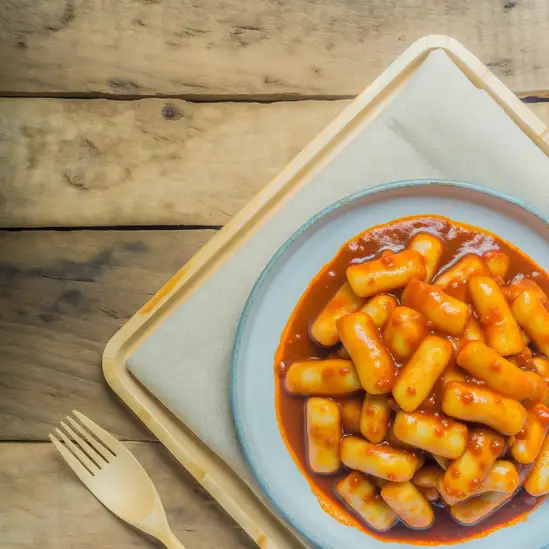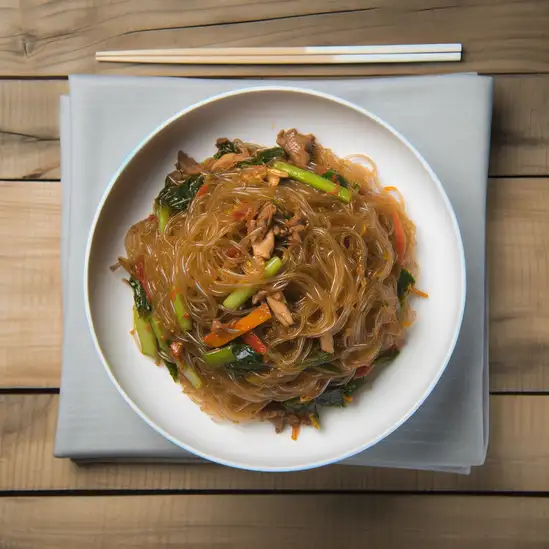



If you find yourself wandering through Yongsan-dong,you’ll immediately notice a unique blend of old and new that feels both vibrant and comforting. The streets hum with a lively energy—vendors calling out their wares,the clatter of footsteps on cobblestones,and the occasional burst of laughter from a nearby café. It’s a place where modern skyscrapers peek over traditional markets,and the scent of sizzling street food mingles with the fresh breeze from the Han River just a short walk away. What really makes Yongsan-dong stand out is its rich cultural tapestry. You can spend your morning exploring the sprawling electronics market,where every gadget imaginable is on display,then lose yourself in the quiet charm of nearby art galleries and cozy bookshops. The neighborhood pulses with creativity,from street murals to indie music spilling out of tucked-away venues. It’s a spot where locals and travelers mingle effortlessly,sharing stories over steaming bowls of spicy tteokbokki or aromatic cups of hand-dripped coffee. Evenings here have a special kind of magic. As the sun dips behind the cityscape,the neon signs flicker to life,casting colorful reflections on wet pavement after a light rain. The air fills with the smoky aroma of grilled meats from bustling barbecue joints,inviting you to sit down and savor the moment. Yongsan-dong isn’t just a place to visit—it’s a place to feel alive,curious,and connected to the heartbeat of Seoul in a way that stays with you long after you’ve left.
The information on this page is currently being reviewed by Tripkliq and should be used as a guide only
Eng word: Hello
Eng pronunciation: annyeonghaseyo
Local language: 안녕하세요
Eng word: Goodbye
Eng pronunciation: annyeonghi gaseyo
Local language: 안녕히 가세요
Eng word: Thank you
Eng pronunciation: gamsahamnida
Local language: 감사합니다
Eng word: How much
Eng pronunciation: eolmayeyo
Local language: 얼마예요
Eng word: Toilet
Eng pronunciation: hwajangsil
Local language: 화장실
Eng word: Help me
Eng pronunciation: dowajuseyo
Local language: 도와주세요
Eng word: Yes
Eng pronunciation: ne
Local language: 네
Eng word: No
Eng pronunciation: aniyo
Local language: 아니요
Eng word: Excuse me
Eng pronunciation: sillyehamnida
Local language: 실례합니다
Yongsan-dong has a long history as a strategic military base, dating back to the Joseon Dynasty. Its name, meaning 'Dragon Hill', hints at its historical significance and geographical importance.
The National Museum of Korea, located in Yongsan-dong, is the largest museum in Korea, showcasing rich Korean history, culture, and art from ancient times to the modern era. It was established in 1945 and moved to Yongsan in 2005.
Opened in 1994, the War Memorial of Korea in Yongsan-dong serves as a tribute to those who lost their lives during the Korean War. It houses exhibits that educate the public about Korea's military history.
Yongsan Park, once part of the U.S. military base, has been transformed into a large public park, offering a green oasis in the urban landscape of Seoul. It symbolizes peace and restoration.
Yongsan-dong is located close to N Seoul Tower, an iconic structure on Namsan Mountain. While not in Yongsan-dong itself, its proximity makes it a significant landmark for locals and tourists.
Yongsan Electronics Market, situated in Yongsan-dong, is one of the largest electronics markets in Korea, offering a wide range of gadgets, computers, and electronic parts since the 1980s.
Adjacent to Yongsan-dong, Itaewon is known for its multicultural ambiance, with numerous international restaurants, shops, and cultural events that reflect global diversity.
Yongsan Station, located in Yongsan-dong, is a major railway and subway station in Seoul, providing critical transit connections across the city and to other parts of South Korea.
Dragon Hill Spa is a renowned relaxation and wellness center located in Yongsan-dong, symbolizing the district's modern embrace of both traditional Korean and contemporary lifestyle amenities.
In Yongsan-dong, the most common Power Adaptor is Type C, Type F.



Grilled pork belly that is typically cooked at the table and enjoyed with lettuce wraps, garlic, and dipping sauces.

Spicy stir-fried rice cakes, often served with fish cakes and boiled eggs, popular as a street food snack.

Stir-fried glass noodles made from sweet potato starch, mixed with vegetables and sometimes beef or other proteins.

A hearty stew made with kimchi, tofu, pork, and various vegetables, often served bubbling hot.

Crispy fried chicken that is often double-fried and coated in a variety of sauces, including sweet and spicy options.

A spicy soft tofu stew that includes vegetables, seafood or meat, and is served in a hot stone pot.

Cold buckwheat noodles served in a chilled broth, often garnished with sliced cucumbers, pear, and boiled eggs, perfect for hot weather.

Marinated beef that is grilled or stir-fried, known for its sweet and savory flavor, often served with rice and side dishes.
Jeju City has this effortlessly laid-back vibe that instantly makes you want to slow down and soak it all in. Imagine stepping off the plane and being greeted by the salty breeze mixed with the faint scent of tangerines from nearby orchards. The streets hum softly with the chatter of locals and the occasional call of seagulls,while the distant waves crash gently against volcanic rocks. It’s a place where nature and everyday life blend seamlessly,giving you a sense of calm adventure.
Walking through Jeju City,you’ll notice the charming mix of modern cafes and traditional markets. The vibrant Dongmun Market is a feast for the senses—brightly colored seafood piled high,the sizzling sound of street food grilling,and the sweet aroma of freshly made hotteok (Korean pancakes) tempting you at every corner. The city’s character shines through its people,who are warm and welcoming,proud of their island’s unique culture and history.
What really sets Jeju apart is its connection to the land—the black lava rock formations,the lush green fields,and the iconic Hallasan Mountain looming nearby. Whether you’re sipping on a cup of locally grown green tea or wandering along the harbor at sunset,Jeju City feels like a gentle invitation to explore,taste,and simply be present. It’s a place that stays with you long after you leave,whispering stories of the sea and earth in your ear.
If you’ve never been to Busan,imagine a city where the ocean breeze carries the scent of salty waves mixed with sizzling street food,and the skyline is a lively patchwork of modern skyscrapers and colorful fishing boats bobbing in the harbor. That’s Busan — a place that feels both vibrant and laid-back at the same time. Walking along Haeundae Beach,you’ll hear the laughter of families and the distant hum of live music from nearby cafes,while the sun warms your skin and the cool sea spray refreshes you. It’s a city that pulses with life but never rushes you.
What really makes Busan stand out is its blend of urban energy and natural beauty. You can start your day exploring the bustling Jagalchi Fish Market,where vendors shout out their freshest catches and the air is thick with the aroma of grilled seafood. Later,wander through Gamcheon Culture Village,a maze of brightly painted houses and quirky art installations that feel like stepping into a living canvas. The city’s character is deeply tied to the sea,and you can taste that in every bite of spicy,tangy kimchi jjigae or fresh hoe (Korean sashimi) served with a side of soju.
Busan’s warmth isn’t just in its weather but in its people — friendly,welcoming,and proud of their city’s unique charm. Whether you’re hiking up to the peaceful Haedong Yonggungsa Temple perched on the cliffs or catching a film at the famous Busan International Film Festival,you’ll find moments that surprise and delight. It’s a city that invites you to slow down,breathe in the salty air,and soak up a culture that’s as rich and layered as the waves rolling onto its shores.
If you ever find yourself craving a place where nature’s calmness meets vibrant local life,Seogwipo on Jeju Island is where you want to be. The moment you step into this city,there’s a gentle hum of the ocean mingling with the rustle of pine trees,creating a peaceful soundtrack that instantly soothes your soul. The air carries a salty freshness,occasionally spiced with the sweet scent of tangerine groves that stretch across the hillsides. It’s a place that invites you to slow down and breathe deeply.
Walking through Seogwipo’s streets,you’ll notice the warm smiles of locals who seem genuinely proud of their city’s rich heritage. The traditional markets buzz with life,offering everything from freshly caught seafood to hand-crafted Jeju black pork dishes that melt in your mouth. Don’t miss the chance to sip on some local tangerine juice—it’s like tasting the sunshine itself. The city’s character is deeply tied to the sea and volcanic landscapes,with dramatic waterfalls and rugged cliffs just a short drive away,making every outing feel like a new adventure.
What really sets Seogwipo apart is its balance between tranquility and vitality. You can spend your mornings wandering along quiet coastal paths,then dive into lively street festivals or cozy cafes in the afternoon. It’s a place where every corner tells a story,and every moment feels like a warm invitation to explore,savor,and connect. Trust me,once you experience Seogwipo,it lingers in your heart long after you leave.
If you ever find yourself in South Korea,don’t just rush through Incheon—it’s a city that quietly hums with a unique energy,blending the buzz of a modern port city with pockets of serene charm. The moment you step out,you’ll notice the salty breeze from the Yellow Sea mingling with the aroma of sizzling street food,like freshly grilled seafood and spicy tteokbokki,tempting you from every corner. Incheon feels alive but never overwhelming,like a place where the past and present chat over a cup of strong Korean coffee.
Wandering through its neighborhoods,you’ll catch glimpses of colorful murals and sleek skyscrapers standing side by side,while the gentle clatter of bicycles and chatter of locals create a comforting soundtrack. The city’s character shines brightest in spots like Chinatown,where lanterns sway overhead and the scent of dumplings fills the air,or Songdo,a futuristic district with glass towers and green parks that invite you to pause and breathe.
What’s really special about Incheon is how it balances its role as a gateway to Korea with its own distinct personality. It’s a place where you can stroll along quiet waterfronts,watch fishing boats bobbing gently,and then dive into lively markets brimming with fresh produce and handmade crafts. Visiting Incheon feels like discovering a friend who’s both worldly and warmly welcoming,ready to share stories,flavors,and moments that linger long after you leave.
Tongyeong is a coastal city often referred to as the 'Naples of Korea,' known for its beautiful islands,cable car rides,and the Hallyeohaesang National Marine Park.
ExploreIf you ever find yourself craving a place where the sea breeze carries stories and the sunsets paint the sky in fiery hues,Yeosu is where you want to be. This coastal city in South Korea has this laid-back charm that instantly wraps around you like a warm blanket. Walking along the harbor,you’ll hear the gentle lapping of waves mingling with the distant chatter of fishermen and the occasional call of seagulls. The salty tang of the ocean air mixes with the aroma of sizzling seafood from street vendors,tempting you to try freshly grilled mackerel or spicy octopus skewers.
Yeosu’s character is deeply tied to its maritime roots,but it’s also a place where tradition and modern life dance together effortlessly. The narrow alleys near the old town are dotted with cozy cafes and art shops,where locals share stories over cups of rich,roasted coffee. At night,the city lights shimmer on the water,and the famous Dolsan Bridge lights up in a dazzling display that feels almost magical.
What really makes Yeosu stand out is its rhythm — a gentle pulse that invites you to slow down and savor moments. Whether you’re wandering through fragrant camellia gardens,hopping between islands on a boat,or simply sitting by the shore watching fishing boats return,there’s a peaceful energy here that stays with you long after you leave. Trust me,Yeosu isn’t just a place to visit; it’s a place to feel alive.
Tourists may encounter fake branded goods sold as authentic, especially in markets or smaller shops.
Scammers may pose as charity workers, asking tourists for donations to fake causes.
Shops in electronics markets may sell counterfeit or low-quality electronics at inflated prices, targeting tourists unfamiliar with the products.
Vendors or service providers may pretend not to understand English to confuse tourists and overcharge them.
Unlicensed or fake tour guides may offer their services, providing little value or misleading information while charging high fees.
Crowded areas, such as markets or tourist attractions, may have pickpockets targeting distracted tourists.
Tourists may be lured into street gambling games, which are rigged to ensure they lose money.
Some taxi drivers may take advantage of tourists by overcharging or taking unnecessarily long routes to increase the fare.
Certain restaurants or shops may have separate, higher prices for tourists compared to locals.
South Korea has very strict drug laws, and this includes Yongsan-dong. The possession, use, or trafficking of illegal drugs is severely punished, with potential penalties including heavy fines and imprisonment. Even certain prescription medications that are legal in other countries may be restricted. Tourists should ensure they have proper documentation for any prescribed medications and avoid any involvement with illegal substances.
In Yongsan-dong, South Korea, smoking is generally prohibited in public places such as parks, bus stops, and within a certain distance from schools and hospitals. Designated smoking areas are available, and violators can face fines. Tourists should look for signs indicating smoking zones and adhere to local regulations to avoid penalties.
Vaping is subject to similar regulations as smoking in Yongsan-dong. It is prohibited in non-smoking areas, including public places and certain indoor environments. Designated vaping areas may be available, and tourists should be cautious to only vape in these specified zones to avoid fines.
What are other people saying about Yongsan-dong?
Recent Social posts about Yongsan-dong
There is nothing to show you for now.